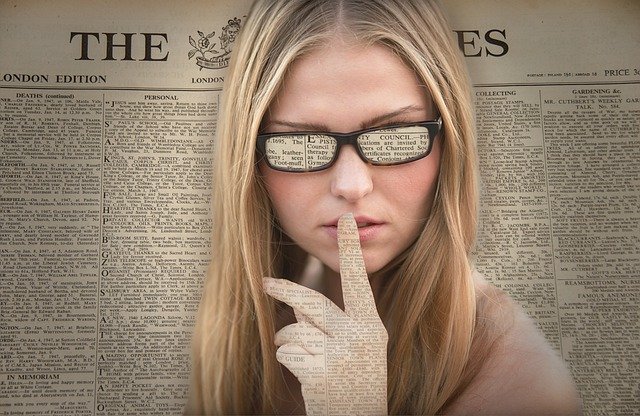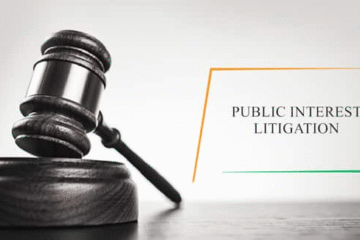
In the world’s largest democracy, the freedom of speech and expression is the most crucial fundamental right availed to the citizens by the constitution. The media is considered as the fourth pillar of democracy and it plays a vital role in a country’s social, political, economical and international affairs. Thus, it goes without saying that free press is a sine qua non for a democracy to survive and thrive and preserve the ethos of good and transparent governance. To preserve the democratic way of life it is essential that people should have the freedom of express their feelings and to make their views known to the people at large.
So, what is freedom of press?
Freedom of the press refers to the minimal interference of the state in the operation of press on any form of communication including, print (newspapers, magazines, journals, reports); audio (radios, podcasts); video (including news channels, OTT platforms like YouTube) and over other electronic mediums like news apps, social media feeds, etc.
The framers of the Indian constitution considered freedom of the press as an essential part of the freedom of speech and expression as guaranteed in Article 19 (1) (a) of the Constitution even though it is not specifically mentioned in the Constitution
As per Indian Newspapers v Union of India, the objective of the press is to supplement the public interest by printing the facts and opinions without which the citizens of the country cannot make well informed rational judgments. Freedom of the press is in the crux of social and political inter-course. It is the paramount duty of the judiciary to prop the freedom of the press and refute all laws and executive actions that interfere with it as opposed to the constitutional provisions.
Scope of Freedom of Press under Article 19(1)(a)
- Freedom to spread information
Without this liberty, freedom of the press is nugatory. Though this right is also implicit in the freedom of expression, Romesh Thapar v State of Madras makes it explicit. The mainline of difference between the freedom of the press and freedom of expression for an individual is that an individual can’t communicate to masses on his own, but a press can by means of its publications on various mediums like print, broadcasts, electronic, etc. Thus, freedom to spread information is an intrinsic part of freedom of the press.
- Freedom to criticize
The press, just like individuals have the liberty to criticize the government, its officials, its policies, its actions, its laws, its statements, etc. However, the press cannot take abuse this right and cannot provoke the public against the government or cannot abet riots, rebels, or mutiny or insecurity of the state or the government.
· Freedom to receive the information
Again, the heart of the liberty to press. If the press is not equipped with the information, it cannot empower the public with the knowledge and thus, the right of expression will become futile because there will be no access to information on whose basis anything can be expressed.
· Freedom to conduct interview
This right is necessary to bring in first hand knowledge from the experts on the particulars subjects and to enlighten the society at large. Though this right is not absolute, there are three caveats to it as follow:
- Interview will only take place on the consent of the interviewee;
- Interview shall stop when the interviewee wants to it to be;
- Interviewer can’t force interviewee to answer any question against his/her will.
· Freedom to report court proceedings
Jeremy Bentham has rightly stated that “the soul of justice is publicity”. In Sahara India Real Estate Corporation Ltd v SEBI, SC held that it is the right of the media to report the judicial proceedings.
Reasonable Limitations of Press’ Freedom
Liberty without any reasonable restrictions on it always hampers the very purpose of granting that freedom in the first place. As freedom of press derives its powers from Article 19(1)(a), it is also subject to the reasonable limitations imposed on A.19(1)(a) under A19(2) which are explained as follow:
- Sovereignty and integrity of the state
It was inserted by an amendment to control the extreme reactions of the people, who were protesting for separate entities of the different regions of India. Any form of speech or any expression which hampers the sovereignty or integrity of the state would be covered under this restriction. The right of freedom to speech and expression can’t be allowed to be used as a weapon against the sovereignty or integrity of the state.
At this juncture, it is essential to take cognisance of the fact that ‘sedition’ is no ground to impose reasonable restrictions as envisaged under Article 19(2) of the Constitution.
· Security of the state
The freedom of expression cannot be exercised in a way so that it becomes a threat to the security of the state in any manner. Any communication which incites the people to cause social unrest, rebels, violence, riots, etc against the state and its subjects would be covered under this restriction.
In State of Bihar v Shailabala Devi, SC held that the speeches made by any person (citizen or non-citizen) which encourage the people to commit offences like dacoity, murder, robbery, etc is without a doubt a threat to the security of the state. Hence such a speech will be considered as a prejudice towards the sovereignty or integrity of the state, and the order to stop or curtail such communication
· Public Order
This term was inserted by the Constitutional (First Amendment) Act, 1951. This clause was added to curtail the effects of Romesh Thappar v State of Madras where the SC had held that the right to circulation is an intrinsic organ of Right to freedom of expression.
The term “public order” has a broad meaning and covers a multitude of actions which may endanger the security of the state. In Madhu Limaye v Sub Divisional Magistrate Monghyr SC held that the term “public order” can be construed as “no insurrections or riots or disturbance to public peace.”
· Decency or morality
For preserving the decency or morality in the country, the state has the authority to limit the freedom of speech and expression of an individual. Further elaboration of this ground is reflected in Sections 292 to 294 of the IPC. The mentioned sections list downs some acts as crime such as selling obscene publications to young individuals, making indecent gestures in Public places etc. In Ranjit Udeshi v State of Maharashtra SC held that the S. 292 of IPC is constitutional as it prohibits obscenity in public places and promulgates public decency and morality.
· Contempt of Court
There is no doubt that freedom of speech and expression is very crucial for societal development, but on the other hand, providing and maintaining justice and equity is also equally substantial. Though, the freedom of speech and expression reckons but it can’t be wielded to cancel out courts’ actions of justice.
The SC under Article 129 & the HCs under Article 215 of the constitution is empowered to take punitive actions for contempt of court. It was further held in C.K. Daphtary v O.P. Gupta it was held that the S.228 of IPC and A.129 of the constitution are valid and are covered within the purview of reasonable restrictions enshrined in Article 19(2) of the constitution. Thus,we can infer from the above discussion that the freedom of speech and expression is prone to Articles 19(2), 129, and 215 of the constitution.
· Defamation
Article 19(1)(a) in no manner gives a license to cause damage to the reputation of a person in the name of freedom of speech and expression. Causing damage to an individual’s reputation is considered as defamation and is a stringent limitation to the right of freedom of speech and expression.
No one is allowed to expose a person to hate, ridicule or contempt by means of any expression, signs or gestures. Defamation is considered as a very stringent act and therefore it is prohibited by the Civil Laws of Torts. Also, it is an offence under S. 499 of the IPC. As something is enshrined as wrong under two statutes, it is obvious that it has a defence under reasonable restrictions of Article 19(2) of the Constitution.
· Friendly relations with Foreign states.
Just like with the term “public order”, this ground was also inserted in Article 19(2) of the Constitution via Constitution (First Amendment) Act, 1951. This main objective of incorporating this restriction was to counter the antagonistic and mala fide propaganda against any foreign country which may have friendly connections with the Republic of India.
Such activities can jeopardize the government’s efforts to promulgate and maintain friendly relations with foreign nations and bring lucrative results out of those results for India. In Jagan Nath v Union of India, SC held that all commonwealth countries are foreign countries for the purpose of Article 19 (2). However, another fact to take cognisance of is that, members of the commonwealth countries including Pakistan aren’t the members of foreign states for the purpose of the Indian constitution.
· Incitement to an offence
As per the criminal jurisprudence, the act of incitement or abetment to an offence is a distinct and independent offence per se. Exercising the freedom of speech and expression to incite an offence would be considered as a threat to the public order.
In State of Bihar v Shailabala Devi, it was held by SC that any communication which leads to incitement of any criminal act can be restricted and any order for such ban will fall within the purview of reasonable restrictions envisaged in Article 19(2) of constitution.
The above mentioned seven grounds of reasonable restrictions act as a line in the sand for the demarcation of the right to freedom of speech and expression which also includes the right to freedom of press. So, one can infer that the right to free press prevails within the boundaries of reasonable restrictions enshrined in Article 19(2) of the constitution.
CASES:
The Hon’ble Supreme Court observed in Union of India v/s Association for Democratic Reforms, “One-sided information, disinformation, misinformation and non information, all equally create an uninformed citizenry which makes democracy a farce. Freedom of speech and expression includes right to impart and receive information which includes freedom to hold opinions”. In Indian Express Newspapers v/s Union of India, it has been held that the press plays a very significant role in the democratic machinery. The courts have duty to uphold the freedom of press and invalidate all laws and administrative actions that abridge that freedom. Freedom of press has three essential elements. They are:
1. Freedom of access to all sources of information,
2. Freedom of publication, and
3. Freedom of circulation.
In Sakal Papers v/s Union of India, the Daily Newspapers (Price and Page) Order, 1960, which fixed the number of pages and size which a newspaper could publish at a price was held to be violative of freedom of press and not a reasonable restriction under the Article 19(2).
In Bennett Coleman and Co. v/s Union of India, the validity of the Newsprint Control Order, which fixed the maximum number of pages, was struck down by the Court holding it to be violative of provision of Article 19(1)(a) and not to be reasonable restriction under Article 19(2). The Court also rejected the plea of the Government that it would help small newspapers to grow.




0 Comments